Abdominal pain and Diarrhoea can be common symptoms of COVID-19 in children
Starting your kids schooling early can be bad for them: Study
The Times Of India launches '#CutTheShame' initiative to redefine narrative on menstrual health
Coronavirus: Post-COVID effects more harmful for kids than the virus itself
Doing THIS activity 10 minutes every day can boost your child's brain health
Abdominal pain and Diarrhoea can be common symptoms of COVID-19 in children
Abdominal pain and Diarrhoea can be common symptoms of COVID-19 in children
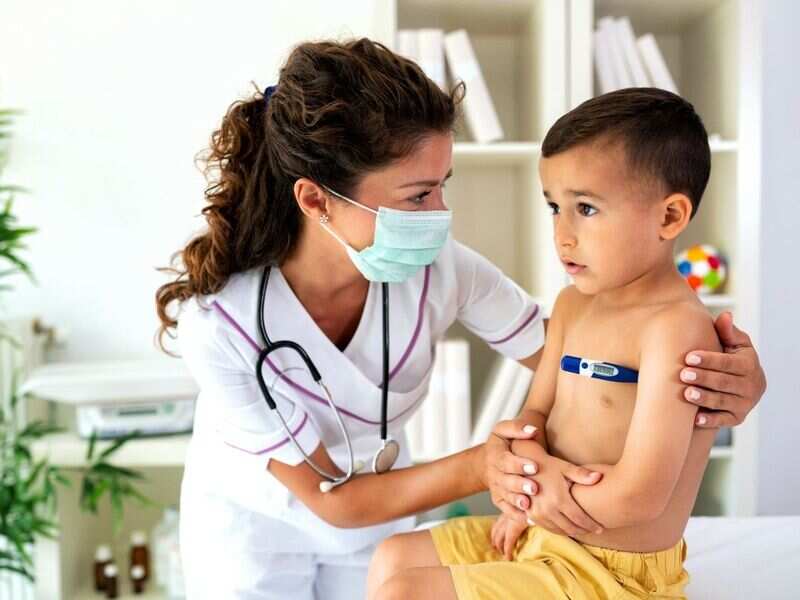
The pandemic has left millions vulnerable to a deadly virus, and now, when we might be inching towards the third wave, it seems that children are going to be the ones at risk.
During the second wave of the pandemic in India, when children and adults got affected, but most children will not develop typical respiratory symptoms as seen in adults. Paediatric COVID-19 infections are usually mild, self-limiting, and rarely require hospitalisation. The severity of illness in infants and children with COVID-19 is far less than that predicted in adults. Paediatric patients with COVID-19 sometimes may not present with typical clinical features of the infection, which is respiratory involvement. Gastro-intestinal symptoms have been reported in children with COVID-19 either with or without respiratory symptoms. The most common GI symptoms seen are loss of appetite, vomiting, diarrhoea, fever, cold, dry cough, fatigue, body rashes, among other flu symptoms, while a few children may develop breathing difficulties.
Dysentery (Inflammation in intestines caused due to diarrhoea) can sometimes be the only presentation of this disease, and long-term isolation should be considered for children or appropriate disinfectant measures should be taken, as the shedding in stool may last for longer duration in children.
GI symptoms along with fever, rash and conjunctivitis are also seen in multisystem inflammatory syndrome (MIS-C), a manifestation of COVID-19 with systemic hyper-inflammation and multi-organ failure. These symptoms may mimic viral/bacterial gastroenteritis or even inflammatory bowel disease.
If parents notice the following symptoms in children. It could be suggestive of COVID-19 and they should consult a specialist immediately.
Diarrhoea
Nausea or vomiting
Stomach-ache
Tiredness
Headache
Muscle or body aches
Poor appetite or poor feeding, especially in babies under 1 year old
How to treat patients if they are COVID-19 positive?
Children with mild symptoms can be treated with home isolation and supportive care proper rest, healthy diet, drinking plenty of water and monitoring the child’s body temperature at every six-hour intervals. If the temperature is above 100 degrees Fahrenheit (38 C), fever can be controlled by the consumption of paracetamol. Children with diarrhoea and vomiting can be given ORS solution, tender coconut water, butter milk or other fluids frequently to prevent dehydration. Breastfeeding should continue. 90-95 per cent of children can be managed at home in this way. Children with moderate symptoms should seek the advice of a medical practitioner preferably through teleconsultation to determine further treatment measures including inpatient hospital admission for further treatment. However, children with severe symptoms should be admitted to the hospital and treated immediately.
Precautionary measures
Parents of breastfeeding babies should try to confine themselves indoors to prevent exposure to the infection. WHO recommends that mothers with suspected or confirmed COVID-19 should initiate or continue breastfeeding. However, mothers should take proper safety and health-related precautions including wearing a mask and washing hands with soap and water or usage of alcohol-based hand rub before holding coming in contact with the baby.
The Takeaway
Diarrhoea and abdominal pain and other stomach hiccups — like gassiness — are common in babies. Though baby diarrhoea can be a pain for you and your little ones, it usually goes away on its own. Most causes of baby diarrhoea don’t need treatment but when it comes to abdominal pain, it is advised to show it to the doctor immediately so that the baby is given medications and timely treatment. Call your paediatrician if your baby has severe diarrhoea or Abdominal pain that doesn’t get better after 24 hours.
This article is authored by Dr. Sufla Saxena, Consultant- Paediatric Gastroenterologist And Hepatologist, Manipal Hospitals, Dwarka, New Delhi
During the second wave of the pandemic in India, when children and adults got affected, but most children will not develop typical respiratory symptoms as seen in adults. Paediatric COVID-19 infections are usually mild, self-limiting, and rarely require hospitalisation. The severity of illness in infants and children with COVID-19 is far less than that predicted in adults. Paediatric patients with COVID-19 sometimes may not present with typical clinical features of the infection, which is respiratory involvement. Gastro-intestinal symptoms have been reported in children with COVID-19 either with or without respiratory symptoms. The most common GI symptoms seen are loss of appetite, vomiting, diarrhoea, fever, cold, dry cough, fatigue, body rashes, among other flu symptoms, while a few children may develop breathing difficulties.
Dysentery (Inflammation in intestines caused due to diarrhoea) can sometimes be the only presentation of this disease, and long-term isolation should be considered for children or appropriate disinfectant measures should be taken, as the shedding in stool may last for longer duration in children.
GI symptoms along with fever, rash and conjunctivitis are also seen in multisystem inflammatory syndrome (MIS-C), a manifestation of COVID-19 with systemic hyper-inflammation and multi-organ failure. These symptoms may mimic viral/bacterial gastroenteritis or even inflammatory bowel disease.
If parents notice the following symptoms in children. It could be suggestive of COVID-19 and they should consult a specialist immediately.
Diarrhoea
Nausea or vomiting
Stomach-ache
Tiredness
Headache
Muscle or body aches
Poor appetite or poor feeding, especially in babies under 1 year old
How to treat patients if they are COVID-19 positive?
Children with mild symptoms can be treated with home isolation and supportive care proper rest, healthy diet, drinking plenty of water and monitoring the child’s body temperature at every six-hour intervals. If the temperature is above 100 degrees Fahrenheit (38 C), fever can be controlled by the consumption of paracetamol. Children with diarrhoea and vomiting can be given ORS solution, tender coconut water, butter milk or other fluids frequently to prevent dehydration. Breastfeeding should continue. 90-95 per cent of children can be managed at home in this way. Children with moderate symptoms should seek the advice of a medical practitioner preferably through teleconsultation to determine further treatment measures including inpatient hospital admission for further treatment. However, children with severe symptoms should be admitted to the hospital and treated immediately.
Precautionary measures
Parents of breastfeeding babies should try to confine themselves indoors to prevent exposure to the infection. WHO recommends that mothers with suspected or confirmed COVID-19 should initiate or continue breastfeeding. However, mothers should take proper safety and health-related precautions including wearing a mask and washing hands with soap and water or usage of alcohol-based hand rub before holding coming in contact with the baby.
The Takeaway
Diarrhoea and abdominal pain and other stomach hiccups — like gassiness — are common in babies. Though baby diarrhoea can be a pain for you and your little ones, it usually goes away on its own. Most causes of baby diarrhoea don’t need treatment but when it comes to abdominal pain, it is advised to show it to the doctor immediately so that the baby is given medications and timely treatment. Call your paediatrician if your baby has severe diarrhoea or Abdominal pain that doesn’t get better after 24 hours.
This article is authored by Dr. Sufla Saxena, Consultant- Paediatric Gastroenterologist And Hepatologist, Manipal Hospitals, Dwarka, New Delhi
End of the article
Comments (0)
Featured in Parenting

Starting your kids schooling early can be bad for them: Study

10 reasons why grandparents and grandkids' relation is awesome

Can endometriosis cause infertility?

How colouring can enhance a child's psychology
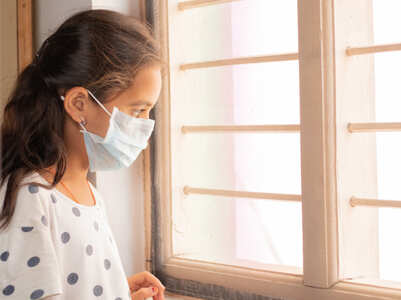
Post-COVID effects more harmful for kids
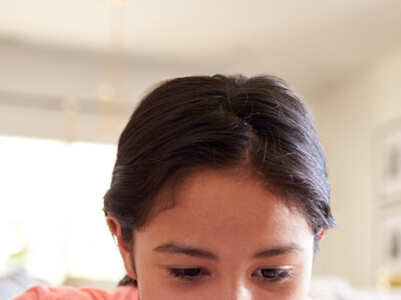
Tips to keep your child safe on social media
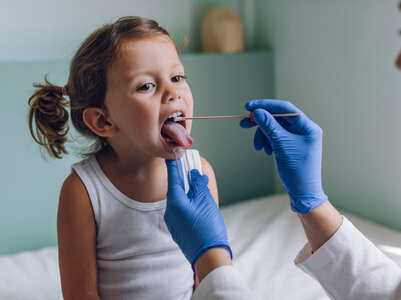
COVID: MIS-C in kids resolve within 6 months

How to encourage your kid to read more
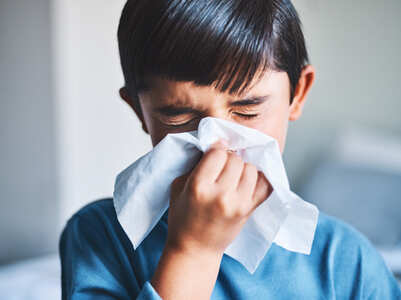
Will the third wave be challenging for kids?
LATEST VIDEOS
Parenting
 Mother's Day: Prenatal yoga asanas perfect for moms-to-be07:57
Mother's Day: Prenatal yoga asanas perfect for moms-to-be07:57 #MindfulParenting: 5 solutions to active active children04:39
#MindfulParenting: 5 solutions to active active children04:39 Tips for a smoother conception06:49
Tips for a smoother conception06:49 How to encourage a good sibling relationship05:02
How to encourage a good sibling relationship05:02 When, what and how to introduce solid foods to babies04:42
When, what and how to introduce solid foods to babies04:42 Homemade tips to treat diaper rashes00:34
Homemade tips to treat diaper rashes00:34 #MindfulParenting: Best toys for your child's development04:37
#MindfulParenting: Best toys for your child's development04:37 #MindfulParenting: How to practice gender neutral parenting07:53
#MindfulParenting: How to practice gender neutral parenting07:53 #MindfulParenting: How to create a strong emotional connection with your child05:06
#MindfulParenting: How to create a strong emotional connection with your child05:06 Things you need to stop telling mothers!04:15
Things you need to stop telling mothers!04:15
StoriesSEE All































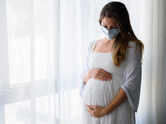









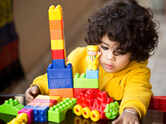












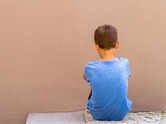




































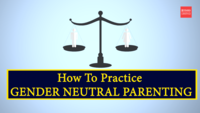





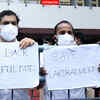
closecomments
SIGN IN WITH
FacebookGoogleEmail